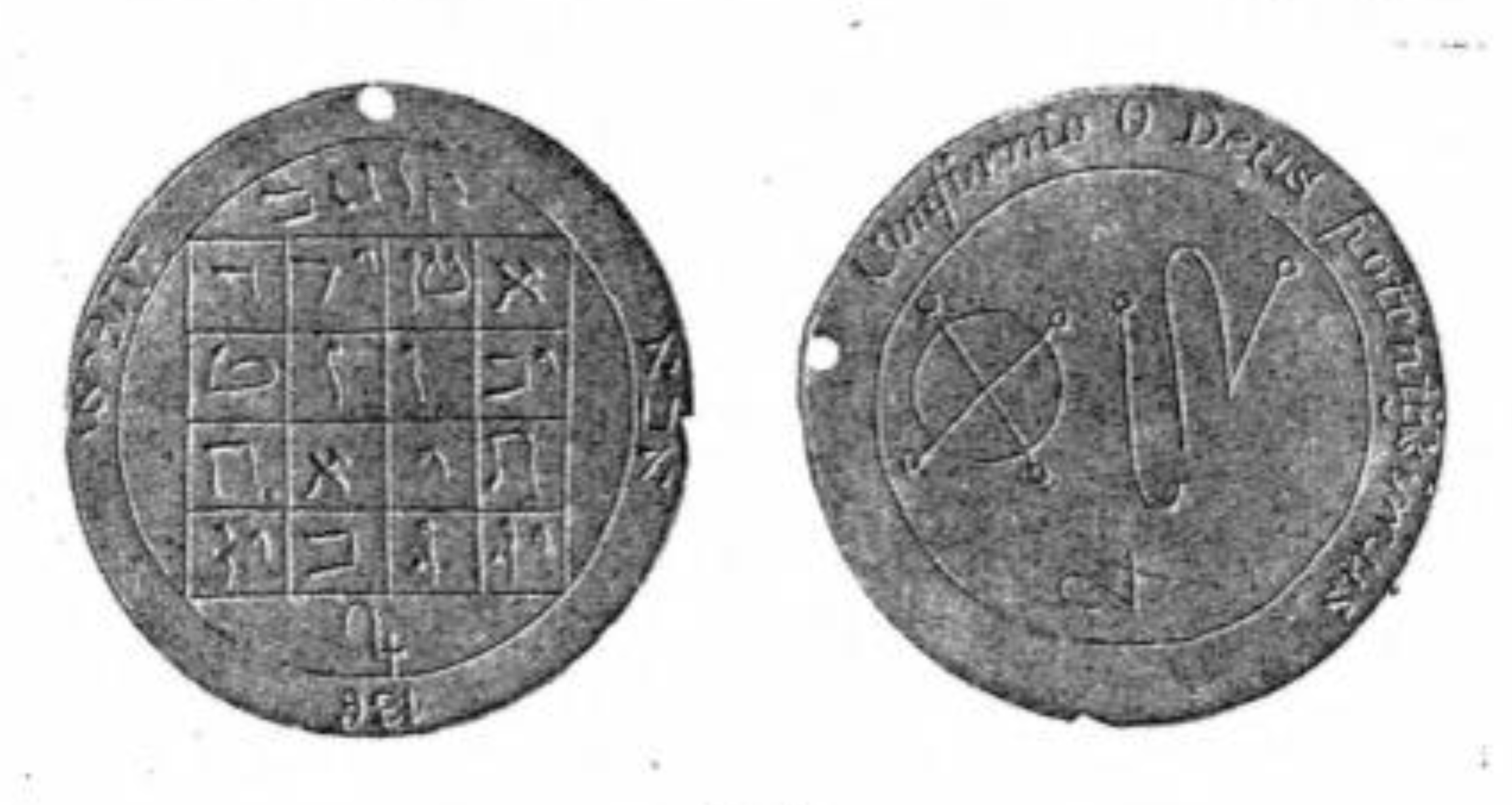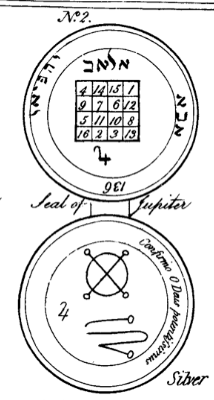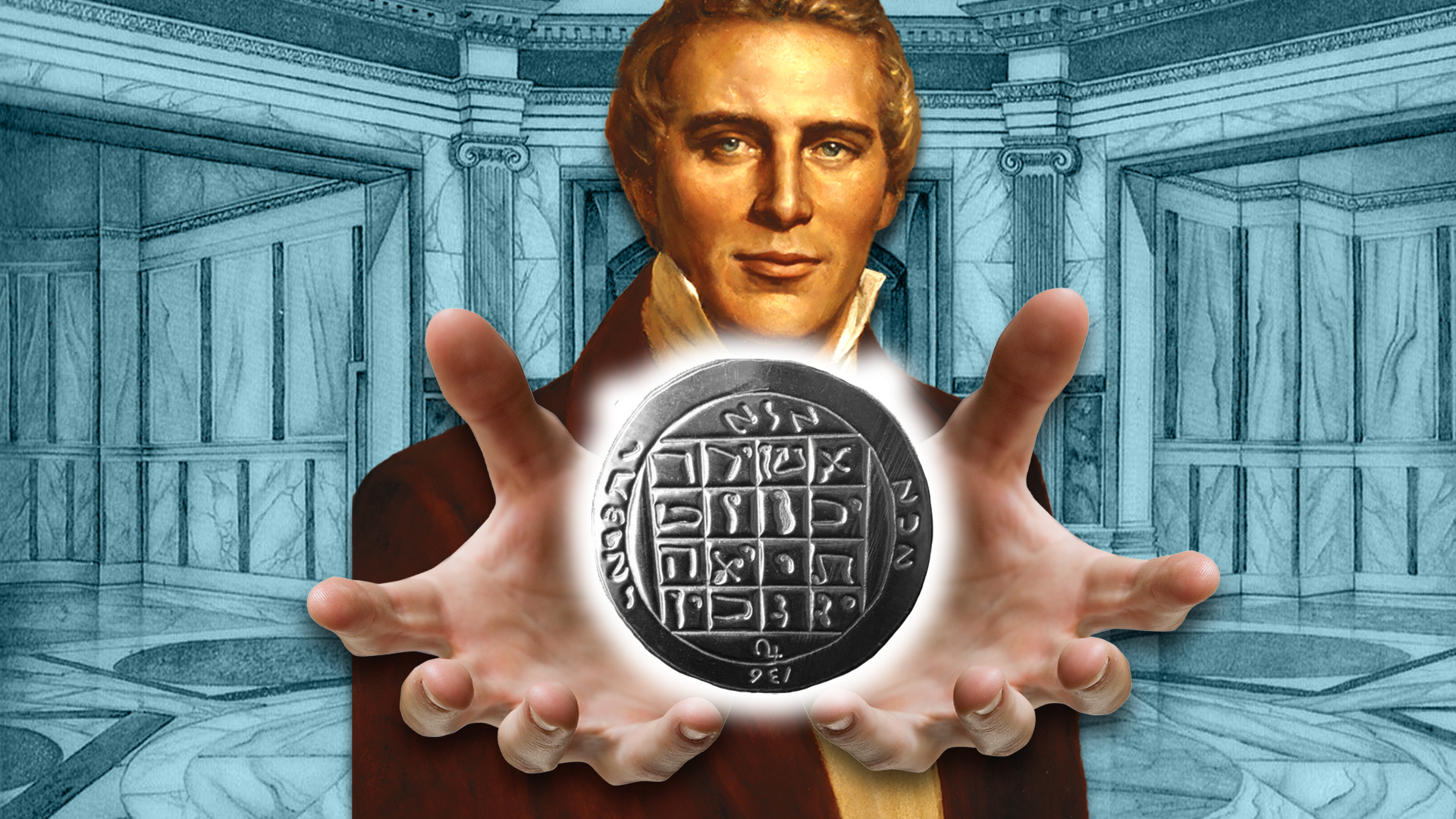It sounds like something out of an airport bookstore thriller: In 1937, Charles Bidamon, stepson of Emma Smith, sold a mysterious “silver pocket piece” to Church collector Wilford C. Wood. Bidamon claimed it had belonged to his stepfather-in-law, Joseph Smith Jr., and had been found in the Prophet’s pocket after his death at Carthage Jail. But this wasn’t just a sentimental keepsake. According to later accounts, it was a Jupiter talisman: an amulet tied to occult practices and supernatural beliefs, said to bring power, protection, and prosperity.
So what exactly is a Jupiter talisman? Did Joseph Smith really have one? And if he did, does it matter?
What even is a Jupiter talisman?
A Jupiter talisman is a metal coin engraved with symbols and phrases connected to Jupiter, the Roman king of the gods. According to Bidamon's description, Joseph's alleged talisman was a silvery pocket piece. Wilford C. Wood noted the silver piece said "Confirmo, O Dies Potentius (Make me, Oh God all-powerful)" in "hieroglyphics" (actually Latin). The talisman also contains Hebrew characters.

The design matches illustrations from The Magus, a mystical guidebook published in 1801 by Francis Barrett. That book tried to merge Christian belief with older magical traditions, and it includes a “Seal of Jupiter” that looks nearly identical to the object Bidamon sold.

Tracing the talisman's origins
The talisman doesn’t first appear until long after Joseph’s death. In 1902, Church apostles visiting Nauvoo were shown a strange metal object that someone claimed had been found in Joseph’s pocket when he died. Henry D. Moyle described it as "about the size of a dollar" (early 20th century silver dollar coins were 1.5 inches across) with a Latin phrase about divine power. A few days later, another Apostle, John Henry Smith, recorded a similar encounter.
Then, in 1937, Charles Bidamon, stepson of Emma Smith, sold a "silver pocket piece" to Wilford C. Wood, claiming it had belonged to Joseph and "was in the Prophet’s pocket at the time of his assassination." Other items obtained from Bidamon included part of the Pearl of Great Price manuscript, a credit statement from 1839, and several other authentic documents. However, an inventory of what was on Joseph's person at the time of his death does not include the coin.
This item was later identified as a Jupiter talisman probably belonging to Joseph Smith by historian Reed Durham in 1974. However, Durham later retracted this identification, citing the lack of primary evidence.
So, was it Joseph's?
We still don’t know for sure. The coin exists, and Bidamon’s story has some weight, especially since he also sold other authentic items, like part of the Pearl of Great Price manuscript. But the first mention of the talisman doesn’t show up until 58 years after Joseph’s death, and there’s no direct evidence tying it to him.
That said, Joseph did have a known interest in things like Latin, Hebrew, and folk magic practices like using seer stones. So while owning a Jupiter talisman wouldn’t be completely out of character, the historical record just doesn’t confirm it.
Does it matter if he had one?
The idea of Joseph Smith carrying a magical coin can feel uncomfortable, especially when words like “occult” or “supernatural” get thrown around. After all, Joseph’s revelations are at the heart of our faith. If he believed in something like a Jupiter talisman, does that blur the line between priesthood power and folk magic?
It’s a fair question. But in Joseph’s world, and in the world of many early Latter-day Saints, there wasn’t always a sharp divide between spiritual and supernatural. Belief in protective objects, seer stones, or symbolic rituals was part of the broader Christian culture of the 1800s.
Even if Joseph did own a Jupiter talisman (and the evidence is inconclusive), we don’t know what it meant to him. He never mentioned it, taught about it, or tied it to his revelations. So while it might add an interesting wrinkle to our understanding of his world, it doesn’t significantly shift the larger picture of his life or leadership.
For more about the Jupiter talisman, read our Q&A article here: Joseph Smith's Jupiter Talisman
Like Mormonr? Sign up for our newsletter to receive updates on the latest blog posts, Q&As, and Mormonr projects.


